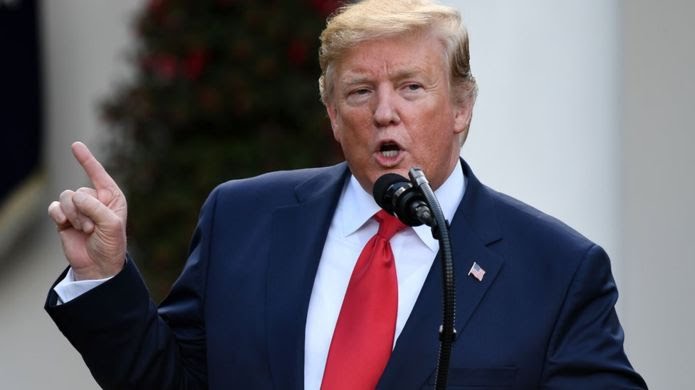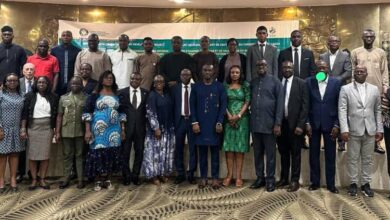Trump offers conflicting signals on whether he believes Russia got him elected

President Donald Trump on Thursday offered conflicting signals on whether he believes Russia helped get him elected, but he claimed that he “had nothing to do” with their efforts to interfere in the 2016 election.
The president first appeared to acknowledge that Russia helped him in a tweeted complaint about the discussion around special counsel Robert Mueller’s report.
“Russia, Russia, Russia! That’s all you heard at the beginning of this Witch Hunt Hoax…And now Russia has disappeared because I had nothing to do with Russia helping me to get elected,” he wrote, claiming that “it was a crime that didn’t exist.”
Assailing Mueller’s Russia investigation once again as the “Greatest Presidential Harassment in history,” Trump tweeted that “highly conflicted Robert Mueller would have brought charges, if he had ANYTHING, but there were no charges to bring!”
But moments later Trump told reporters he was the sole force responsible for his 2016 victory, not the Kremlin.
“No, Russia did not help get me elected,” the president said. “You know who got me elected? I got me elected. Russia didn’t help me at all. Russia, if anything, helped the other side.”
In his report on the investigation, Mueller outlined 10 instances where he alleged Trump attempted to thwart the probe, including efforts to have the special counsel removed. On the issue of Russian interference, while Mueller detailed the Trump campaign’s contacts with Russia, he ultimately determined “that there was insufficient evidence to charge a broader conspiracy” between the two sides. While Mueller’s report outlined a sweeping effort by Russian actors to meddle in the 2016 election to Trump’s benefit, there has been no definitive evidence showing that their efforts were responsible for his upset victory.
Mueller, who spoke publicly about his investigation for the first time Wednesday, declined to clear the president both in his report and in his public comments, though he has made clear he never planned to bring charges against Trump due to a Justice Department policy against charging sitting presidents.
In his highly anticipated remarks, Mueller reiterated that his investigation into the Trump campaign’s ties to Russia and whether Trump sought to obstruct the investigation operated within the framework of the DOJ policy, meaning that “charging the president with a crime was therefore not an option we could consider.”
Still, he said, “if we had had confidence that the president clearly did not commit a crime, we would have said so. We did not, however, make a determination as to whether the president did commit a crime.”
Trump and his allies have consistently claimed that Mueller’s decision not to bring charges against the president amount to an exoneration in the nearly two-year investigation that Trump has openly fumed about. But Mueller’s emphasis on correcting that idea Wednesday appears to have prompted a slight shift in messaging.
“So now the Dems and their partner, the Fake News Media, say he fought back against this phony crime that didn’t exist, this horrendous false acquisition [sic], and he shouldn’t fight back, he should just sit back and take it,” Trump wrote Thursday. “Could this be Obstruction? No, Mueller didn’t find Obstruction either. Presidential Harassment!”
In comments to reporters later Thursday morning, Trump called accusations that he assisted in Russia’s efforts a “disgrace.” He also returned to his personal attacks on the special counsel, after initially letting up on Mueller in the immediate aftermath of his topline findings being disclosed.
Story Continued Below
“I think he is a total conflicted person,” he said while leaving the White House. “I think Mueller is a true never Trumper,” he added, referring to a nickname used by Republicans who oppose the president.
In defending Mueller’s conflicts, Trump again pointed to issues he’s raised in the past, including that the White House had reportedly considered him for the post of FBI director, that there had been a past disagreement over Mueller’s membership at one of Trump’s golf clubs, and Mueller’s relationship with former FBI director James Comey, who Trump fired in 2017.
“So whether it is love or deep like, but he was conflicted,” Trump said of Mueller’s relationship with Comey. He went on, arguing that Mueller “should have never been chosen” as special counsel because of his discussions about the FBI director post.
“So you tell somebody ‘I’m sorry, you can’t have the job.’ Then after you say that he is going to make a ruling on you? Doesn’t work that way. Plus we had a business dispute,” Trump said.



